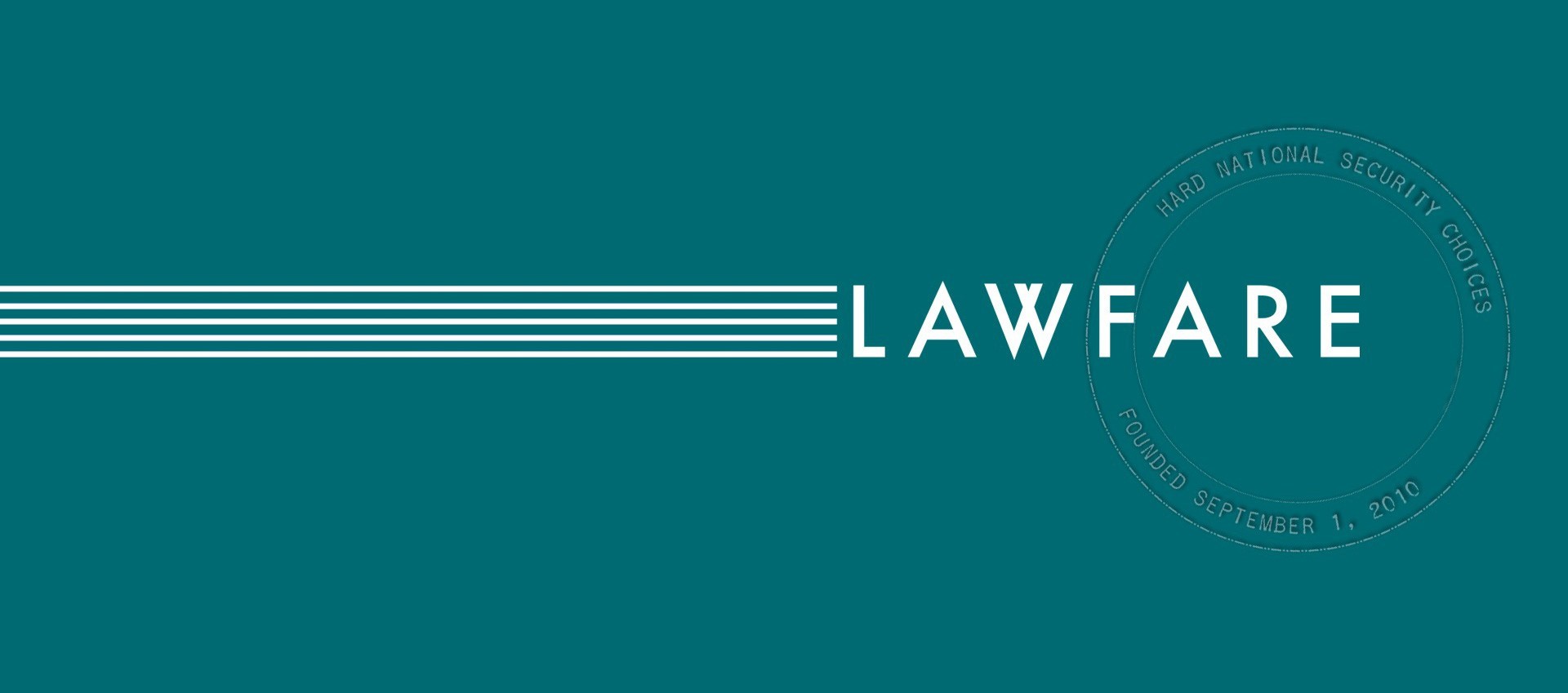Readings: Three Books on Covert Action
The rise of new technologies such as drones, enabling more discrete surveillance and uses of force, is one factor prompting new interest in covert action (used in a colloquial sense).
Published by The Lawfare Institute
in Cooperation With

The rise of new technologies such as drones, enabling more discrete surveillance and uses of force, is one factor prompting new interest in covert action (used in a colloquial sense). The renewed interest in covert action has also prompted attention to the domestic and international law questions that such activities raise - Bobby Chesney's article on the convergence of Title 10/Title 50 activities and personnel, for example, or the panel discussion at the recent Harvard National Security Journal symposium that took up some questions of convergent command between the military and the CIA and legal questions raised.
Others are taking up these issues as well - Marty Lederman asks related questions in a guest-post at Opinio Juris, and Jennifer Daskal and Ashley Deeks have been moving to take up certain aspects of these issues as well. I have been shifting my own attention to targeted killing and drones toward the larger question of uses of force that are more discrete but also more discreet, more precisely targeted and less likely to produce collateral harms but also less attributable to a party. "Covert" is not really the term needed and I sometimes use alternative but clumsy phrases like "intelligence-driven uses of force," but it's easier to say "covert action" in a colloquial and not technical legal sense. I expect that there will be lots more attention to this cluster of questions, driven by changes in technology, strategy, and tactics, and the spread of all these to other states. At any rate, in my background reading, I have three books to recommend:
W. Michael Reisman and James Baker, Regulating Covert Action (Yale UP). This classic first appeared in 1992, but has just been re-released by Yale UP in 2011 in paperback. While naturally some things are outdated, it is remarkable how timely it remains. In particular - and quite beyond the topic of covert action - the book is a fine example of a method of "doing" international law that is ever more important; pragmatic in the sense that Michael Glennon has described, infusing international law with the necessary politics and diplomacy and practicality, deeply connected to actual practices of states (what they do and not just what they say), and yet willing to make normative judgments so long as they are not overly reaching nor out of line with what states actually do. Set within that method, this book lays out a paradigm of the international and internal justification and regulation of covert action that is remarkably salient twenty years on.
Stephen F. Knott, Secret and Sanctioned: Covert Operations and the American Presidency (Oxford UP USA 1996). This is a work of history, which came to my attention through Benjamin Kleinerman's review of Professor Knott's recent book; it was published in 1996, but remains highly relevant today for its main thesis that covert and clandestine operations did not begin with the OSS and the CIA, but go back all the way to the Revolutionary War.
Stephen Dycus, Arthur L. Berney, William C. Banks, Peter Raven-Hansen, National Security Law (5th ed.) (Aspen 2011). This classic casebook has been updated and re-issued as of 2011, and contains important chapters on covert activities (although it is a casebook covering the entire field of national security). The casebook materials contain many useful reference sources.
Kenneth Anderson is a professor at Washington College of Law, American University; a visiting fellow of the Hoover Institution; and a non-resident senior fellow of the Brookings Institution. He writes on international law, the laws of war, weapons and technology, and national security; his most recent book, with Benjamin Wittes, is "Speaking the Law: The Obama Administration's Addresses on National Security Law."




